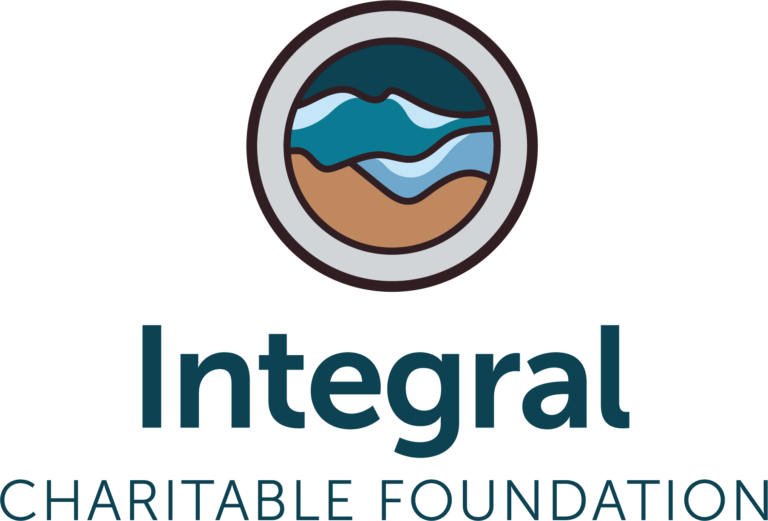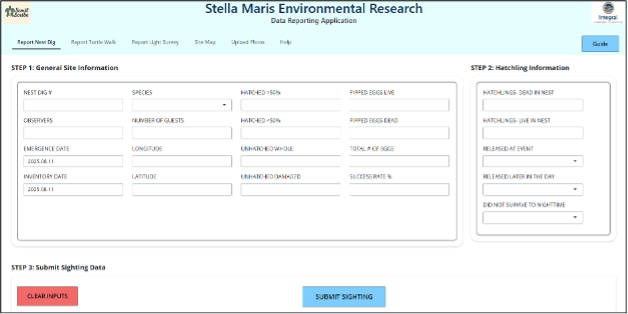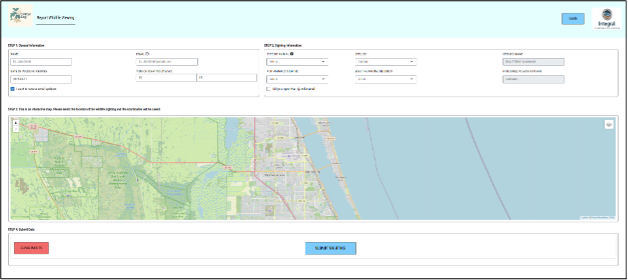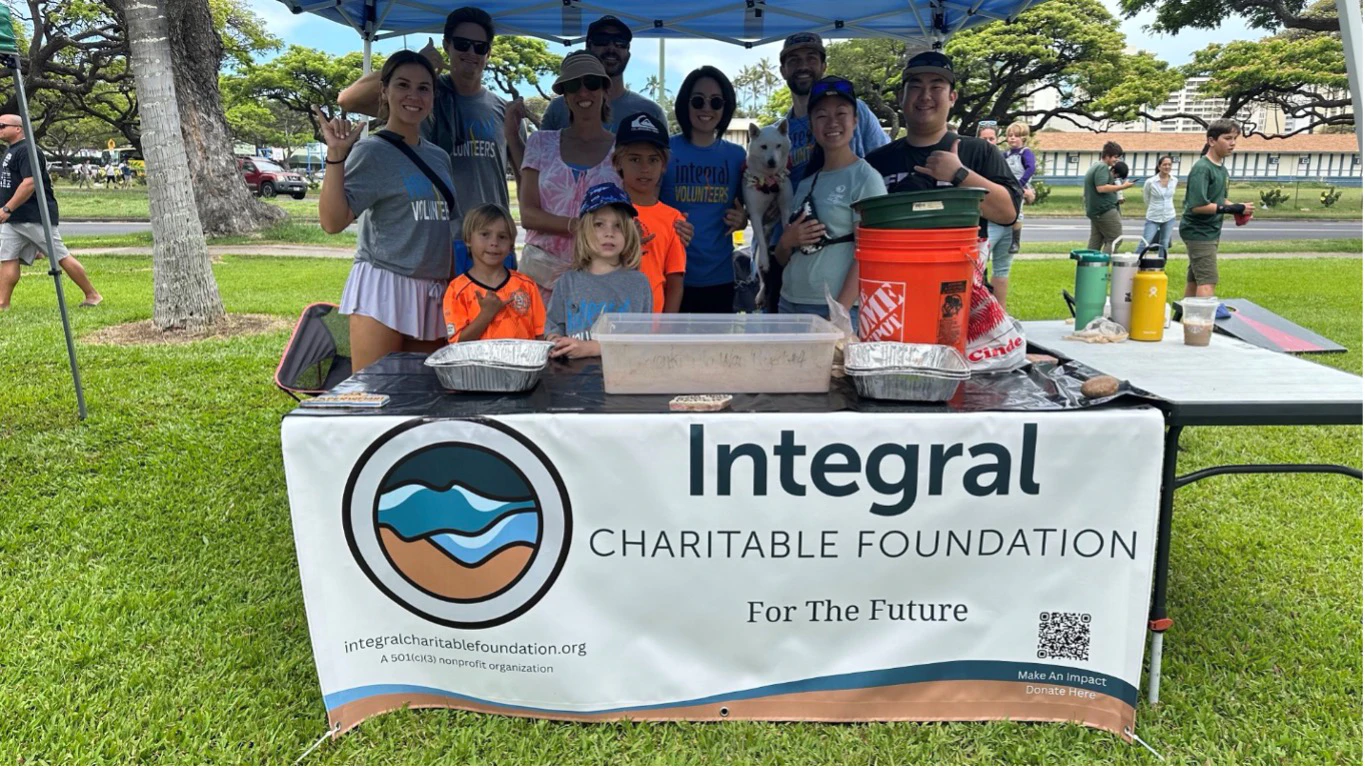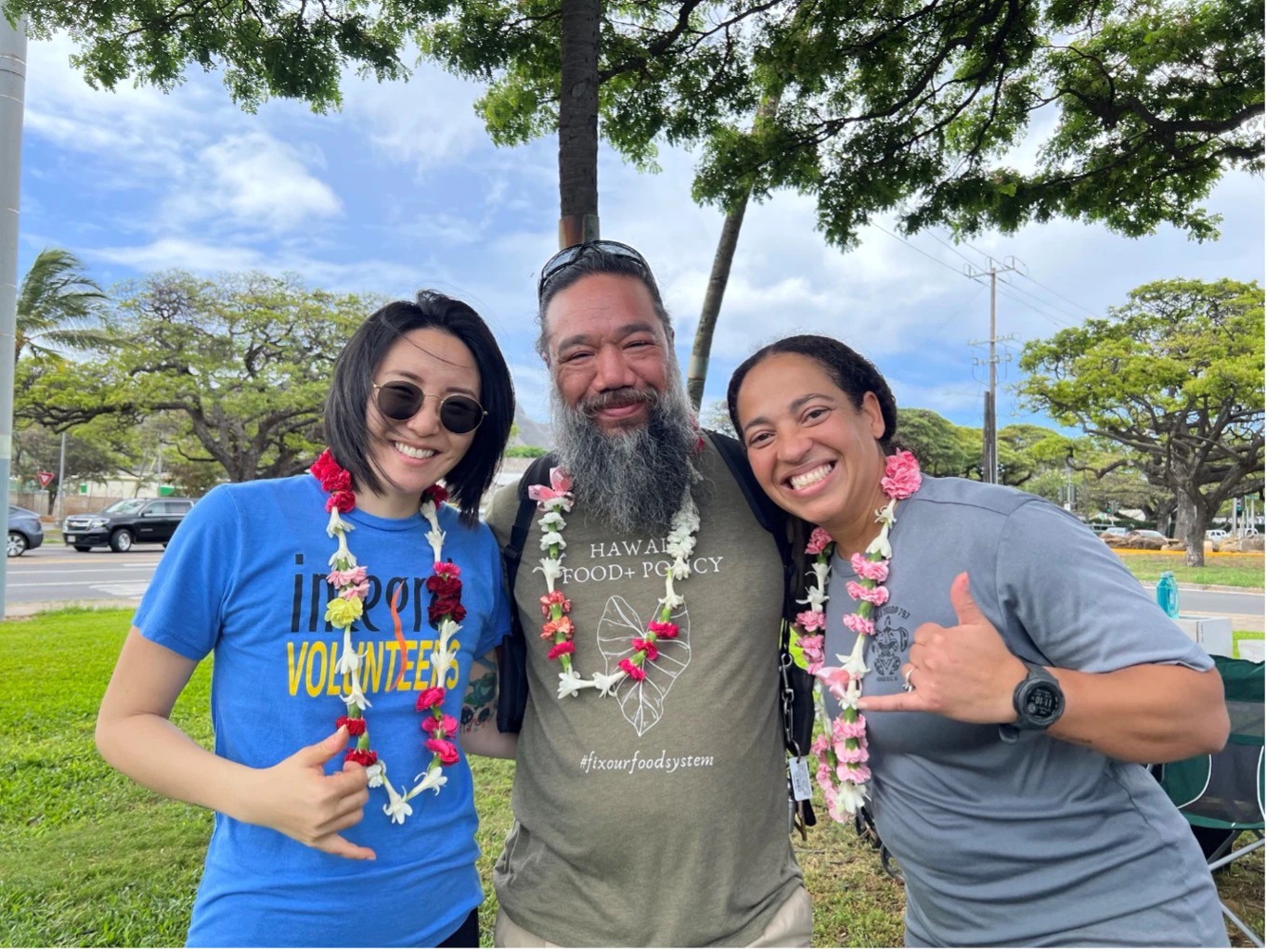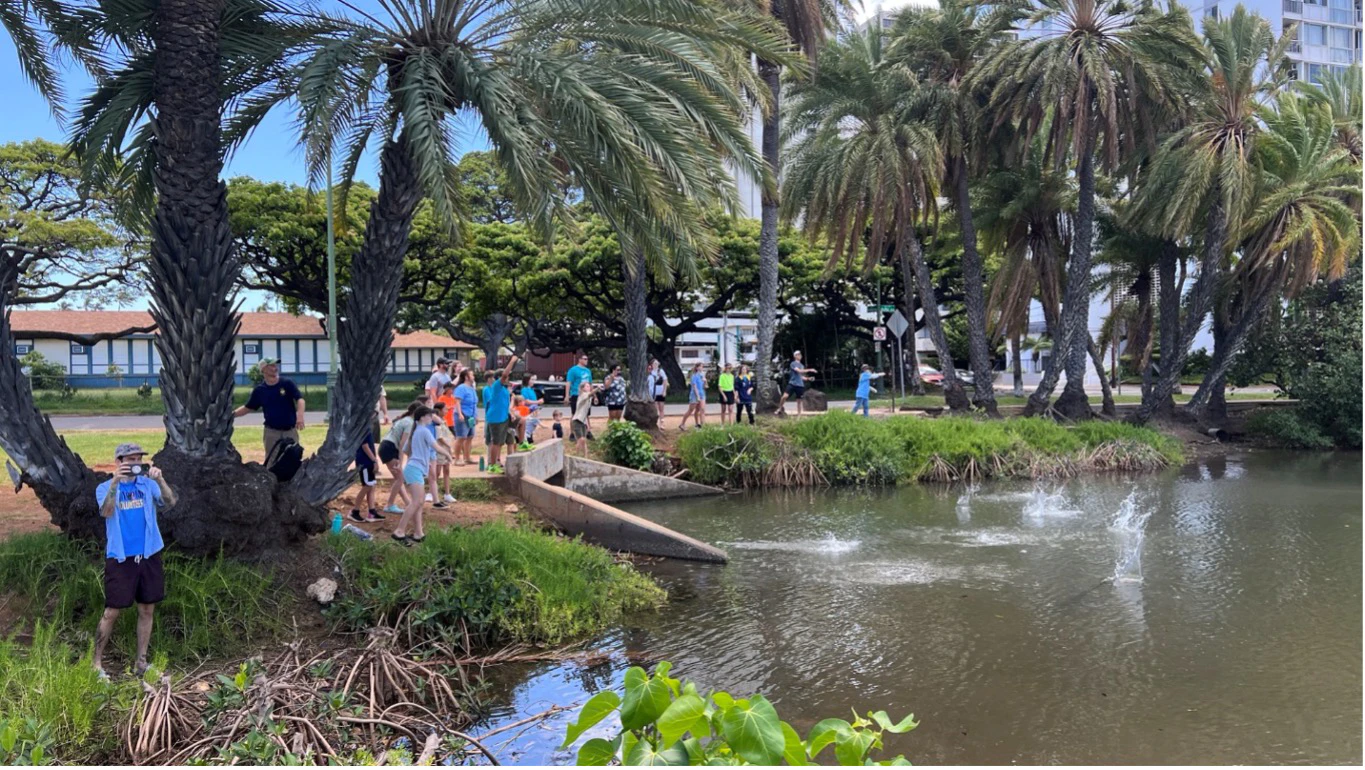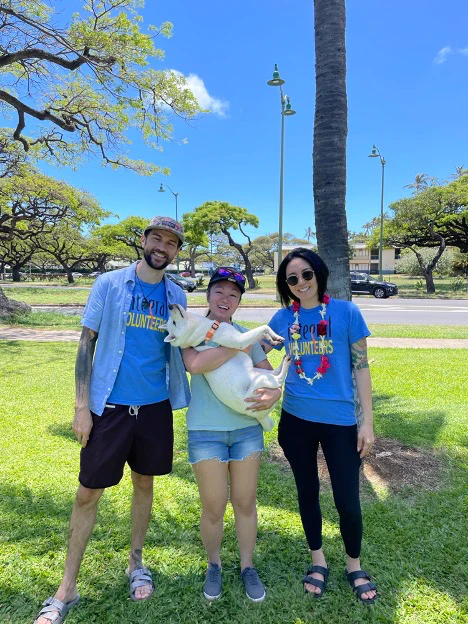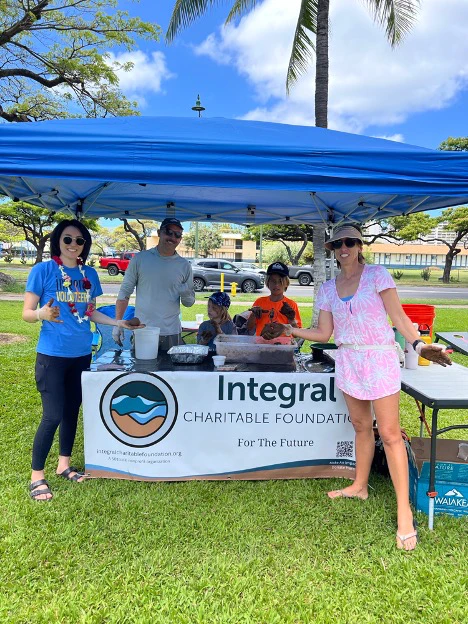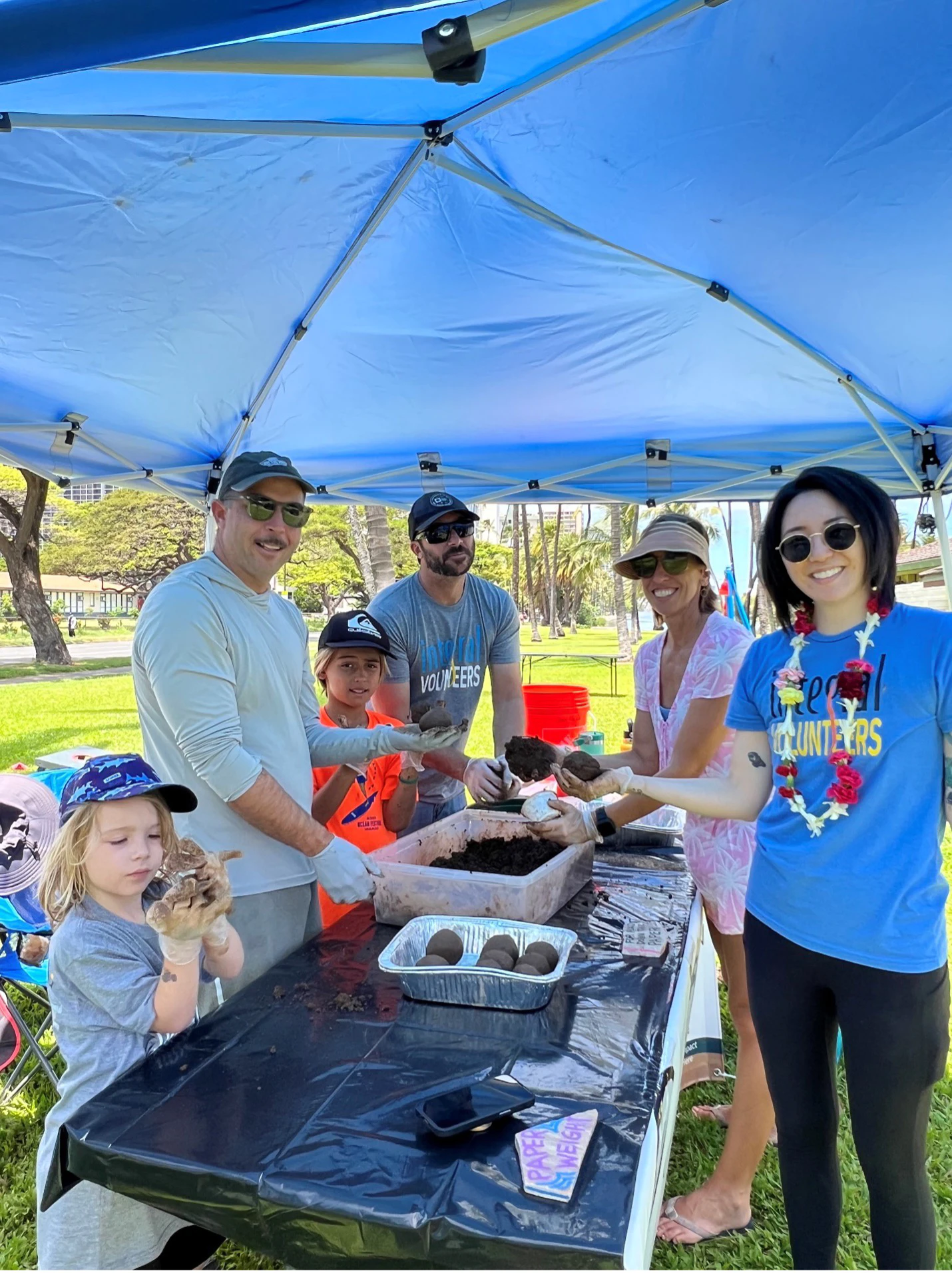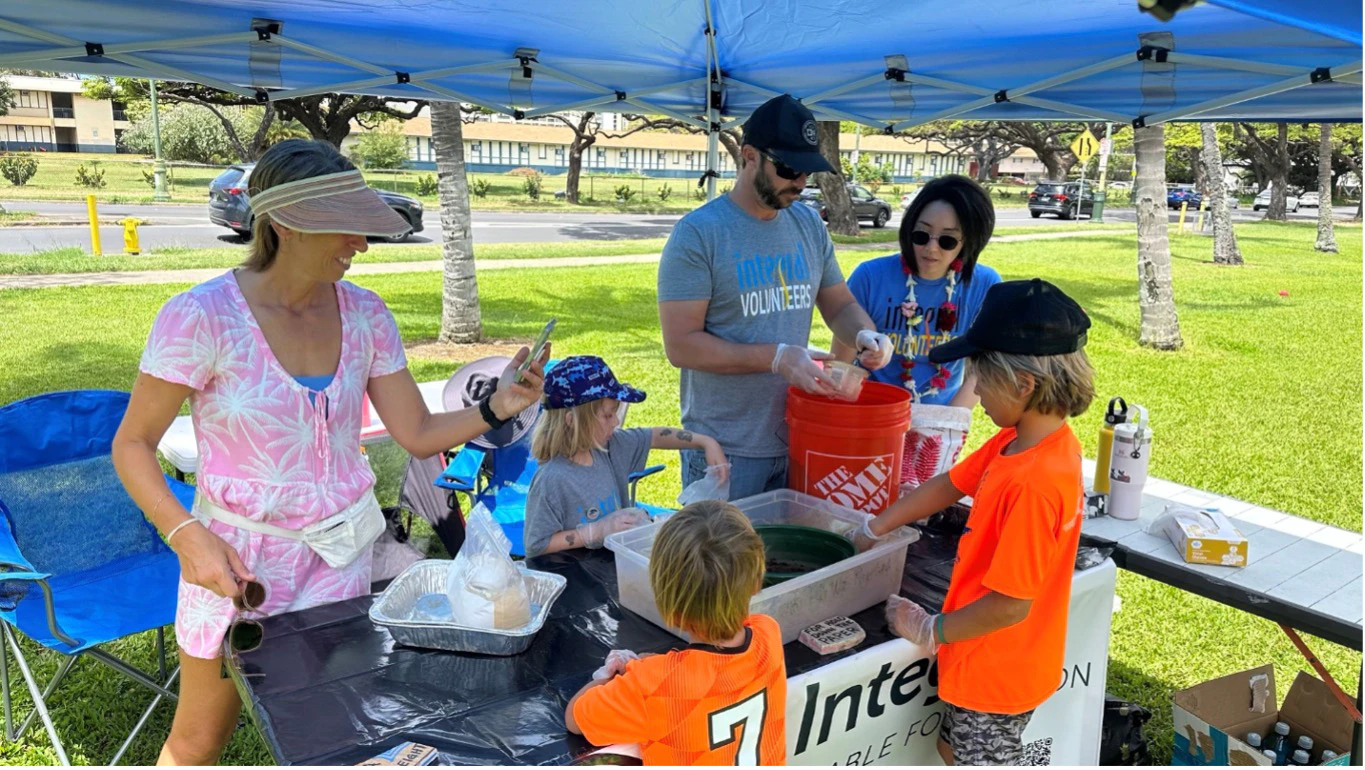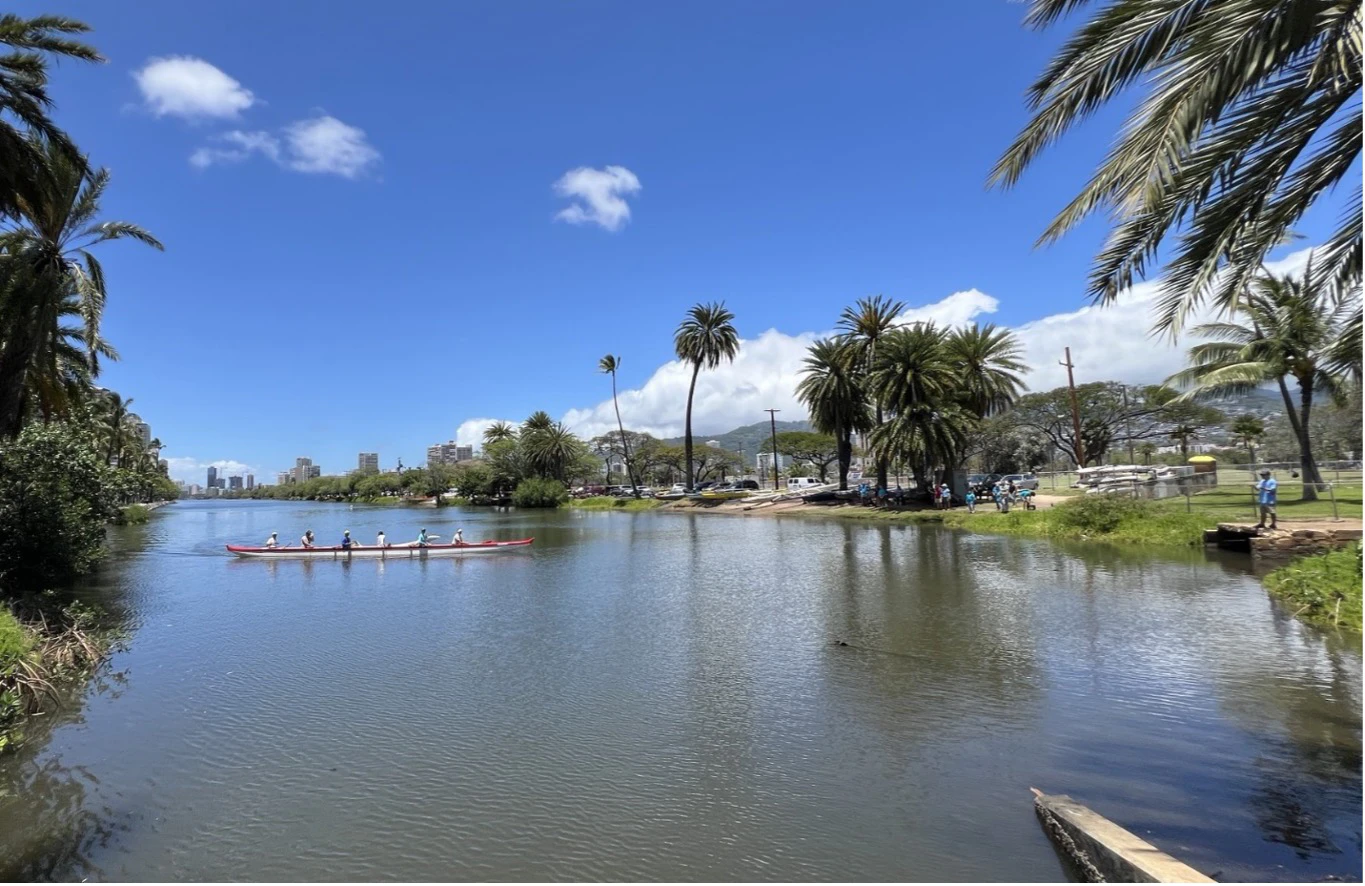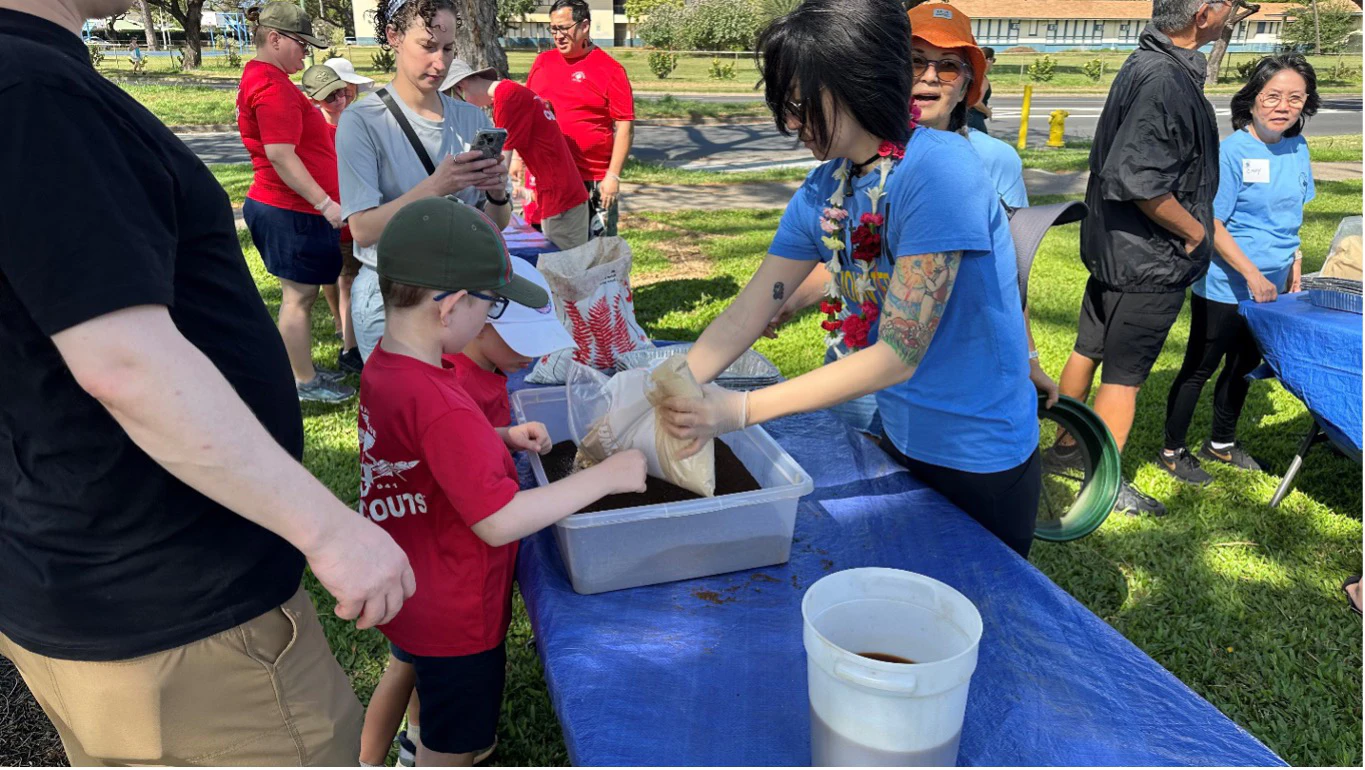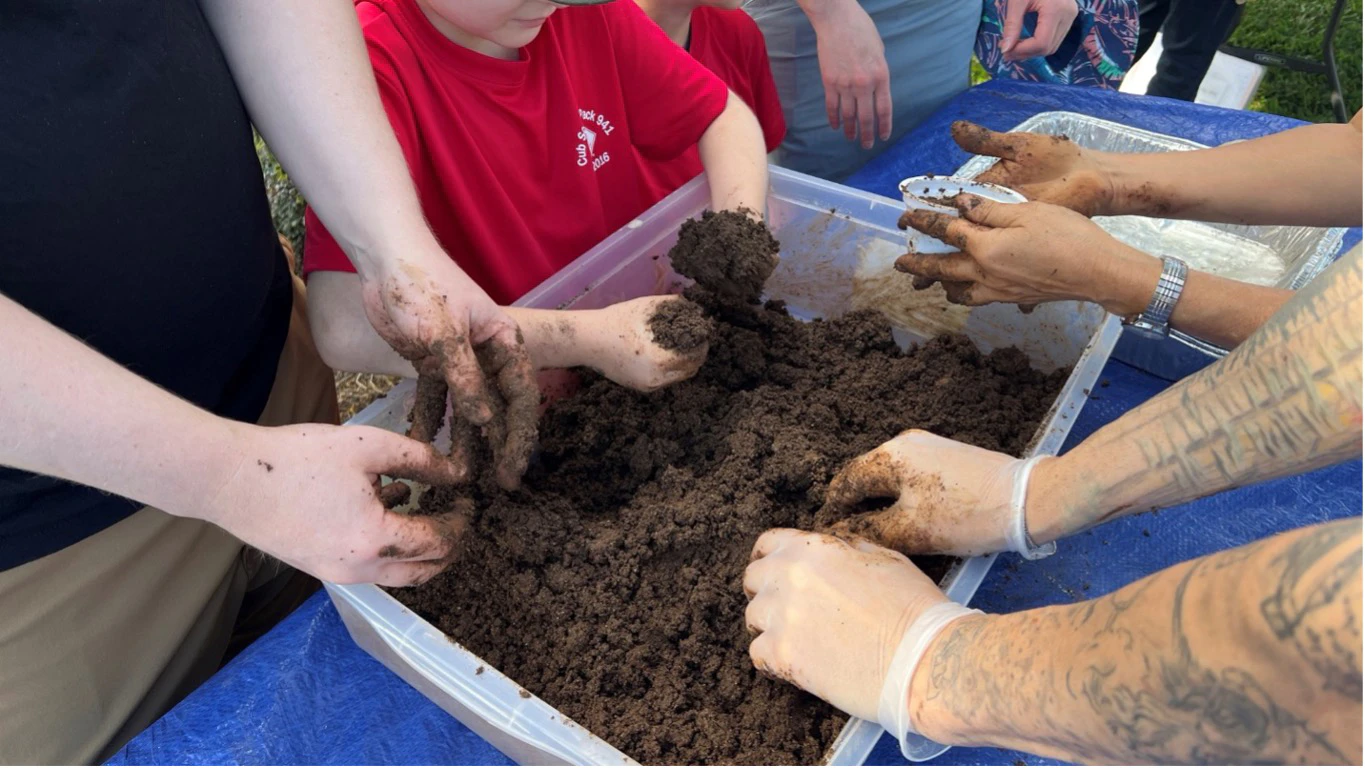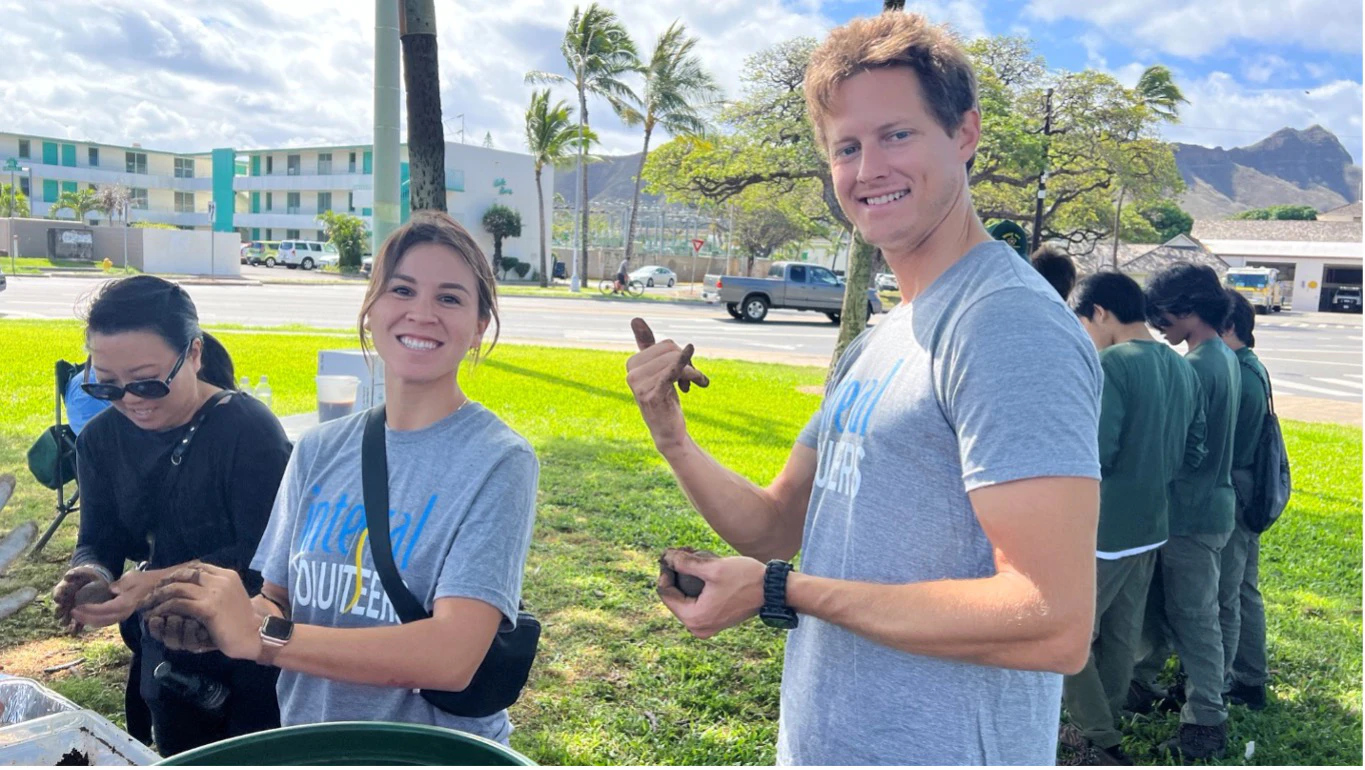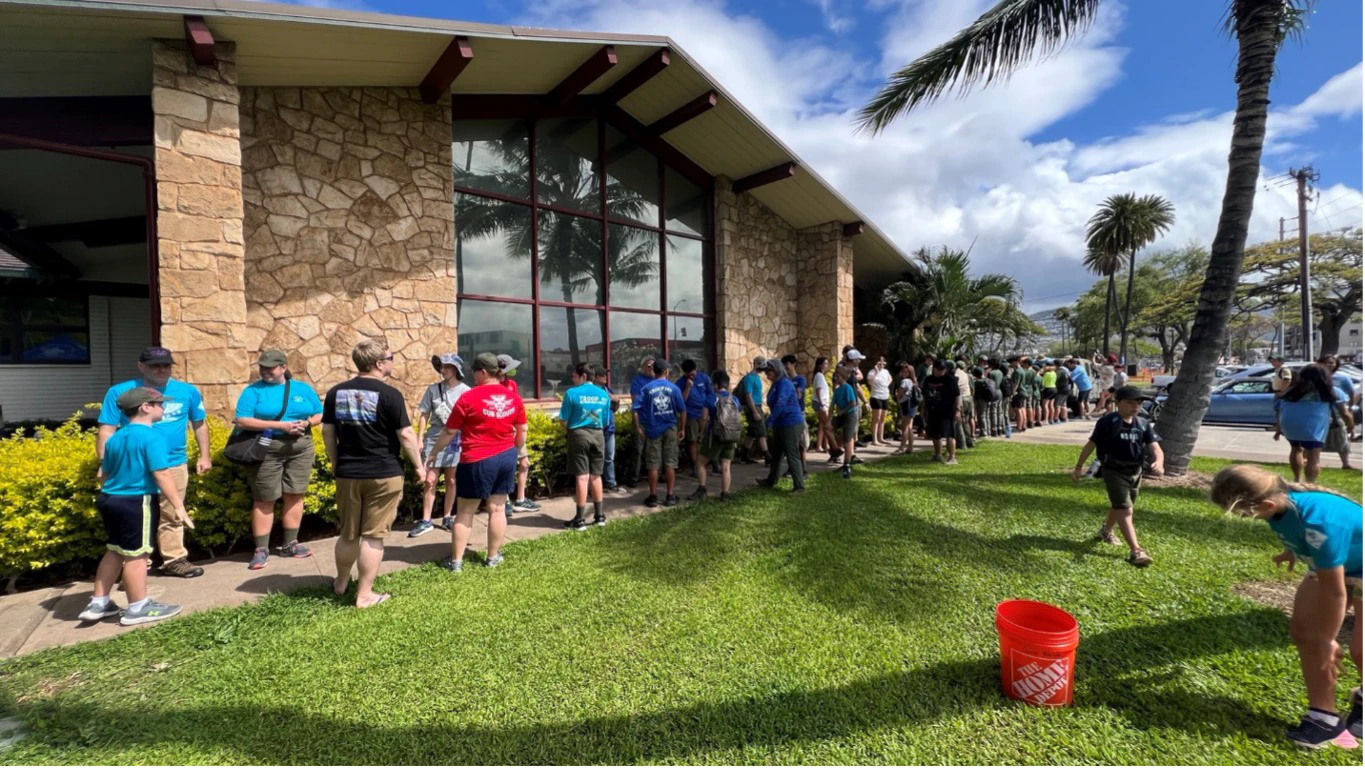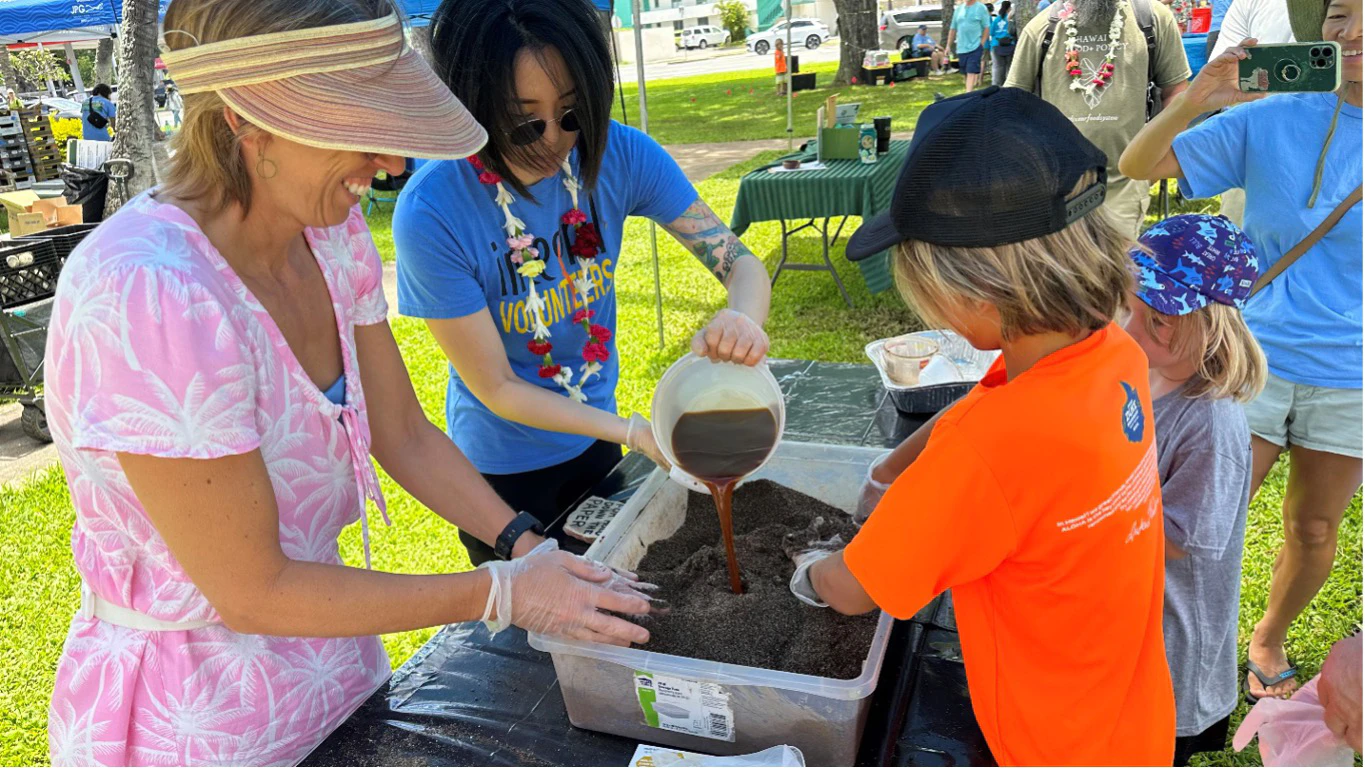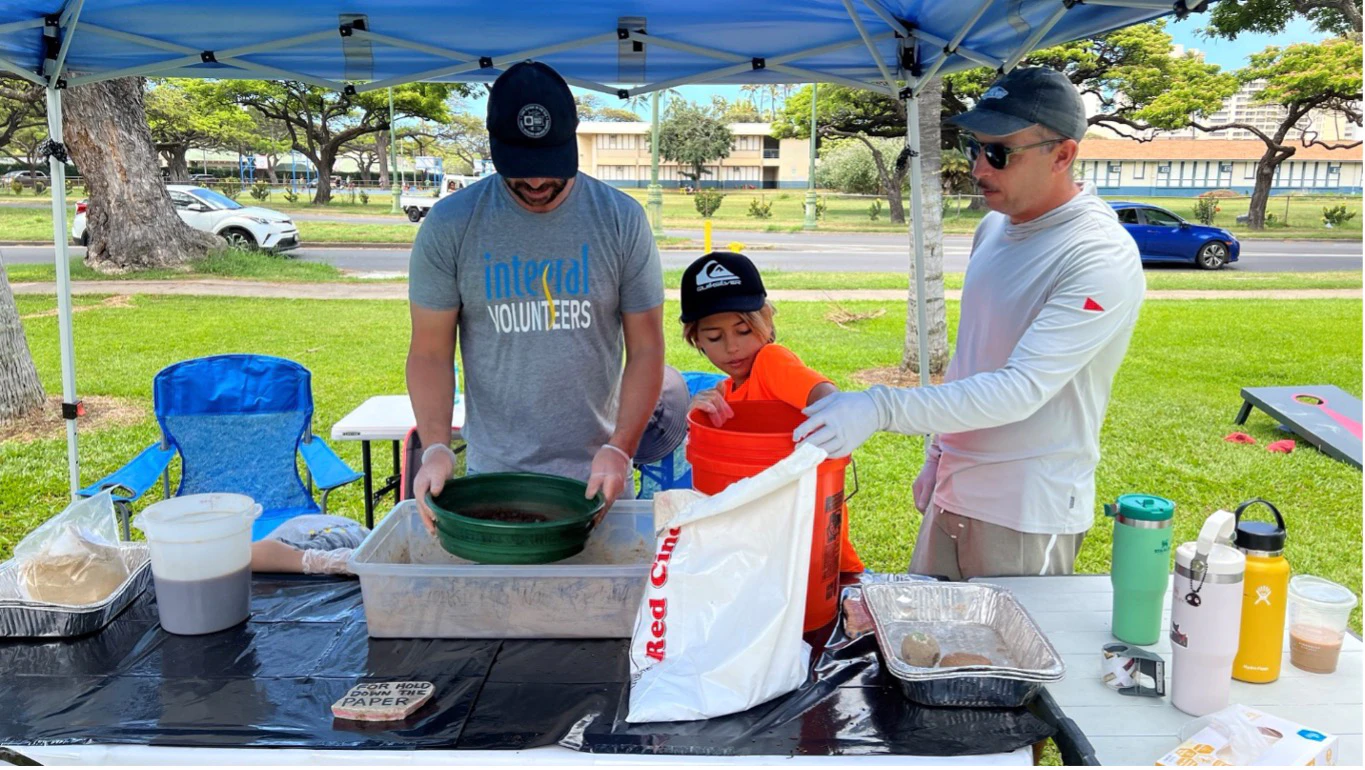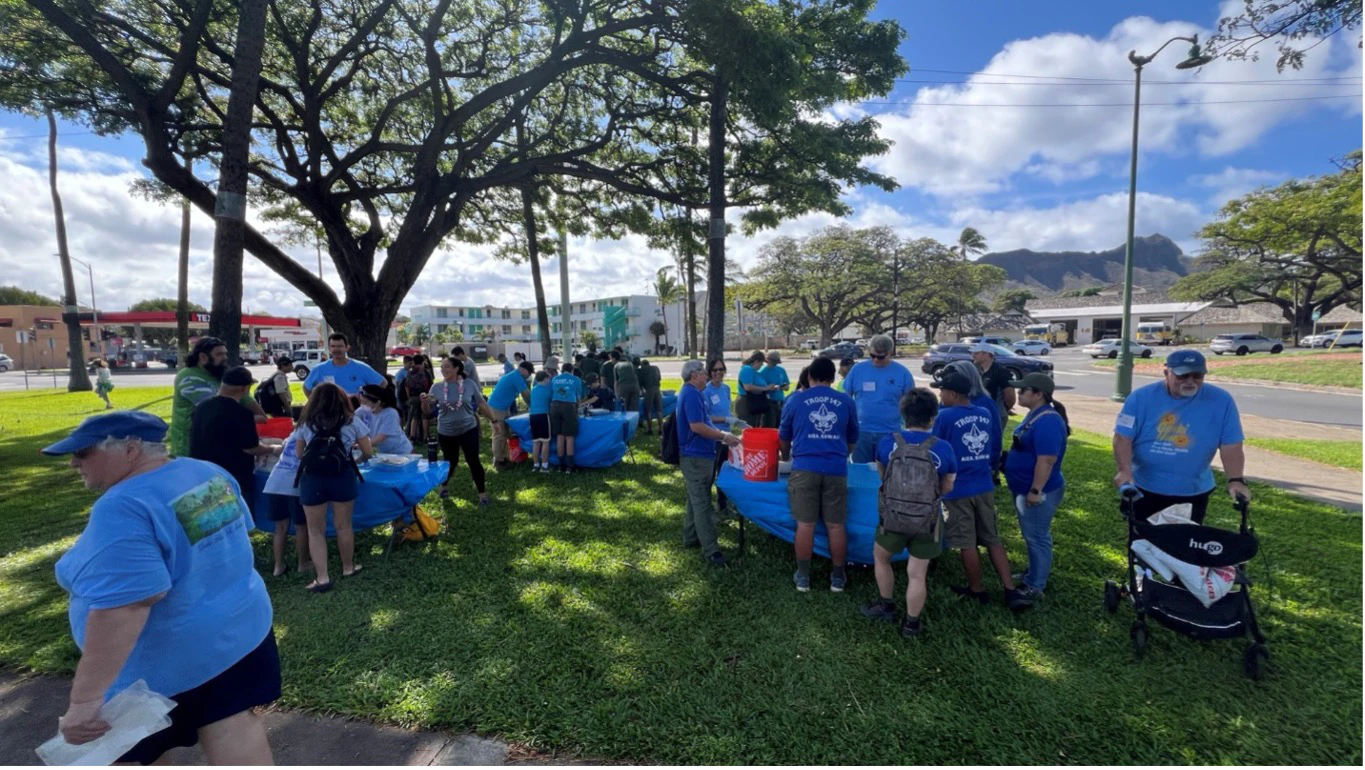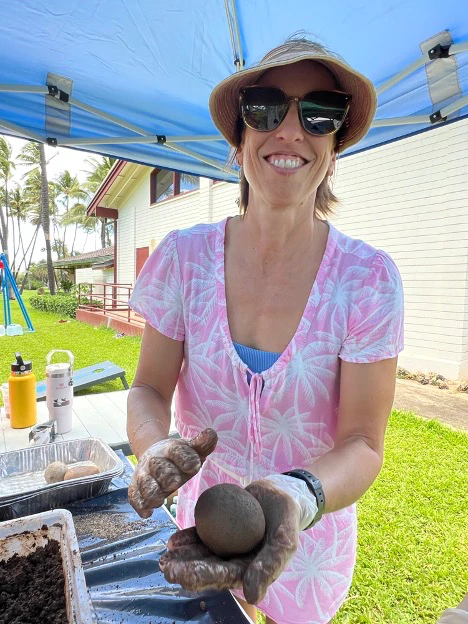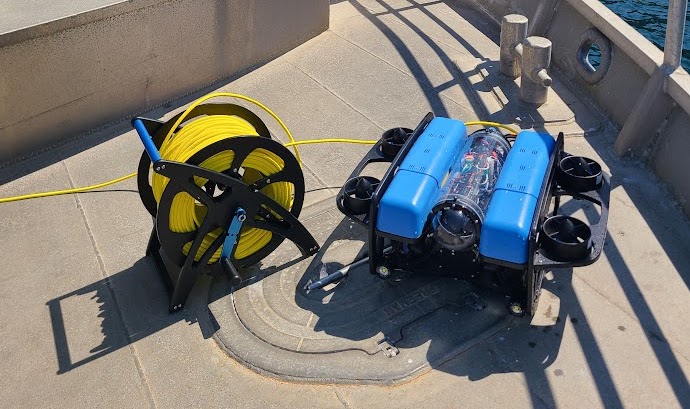Initiatives Supported
Where support is directed?
Financial and non-financial support
Financial and non-financial support is directed towards organizations who share in the belief of a better future. Organizations that prioritize science, responsibility, excellence, and inspire others to take action.
In 2025, we expanded our program to continue existing and to develop new long-term partnerships between the ICF, Integral staff, and local nonprofit organizations with a presence in Integral staff hometowns. The program includes a 3-year commitment of donations ($3,000/year), volunteering, and other support for each organization. We support four partnerships:
Annual STEM Donations
The ICF donated $1,500 to STEM organizations, both in the communities where Integral has offices, as well as national organizations.
In 2024, we launched a program to develop long-term partnerships between the ICF, Integral staff, and local nonprofit organizations. The program includes a 3-year commitment of donations ($2500/year), volunteering, and other support for the organization. We have launched three partnerships:
Annual STEM Donations
The ICF donated $1,500 to STEM organizations, both in the communities where Integral has offices, as well as national organizations.
We provide direct contributions to nonprofit organizations in their efforts to address climate change, improve environmental health, expand access to STEM education for the next generation, aid victims of natural disasters, and invest in our communities. These organizations were selected by the staff of Integral Consulting Inc. and provide a diverse selection of organizations that embody the Integral Charitable Foundation’s mission and values. Below is the list of organizations we contributed to in 2023:
We provide direct contributions to nonprofit organizations in their efforts to address climate change, improve environmental health, expand access to STEM education for the next generation, aid victims of natural disasters, and invest in our communities. These organizations were selected by the staff of Integral Consulting Inc. and provide a diverse selection of organizations that embody the Integral Charitable Foundation’s mission and values. Below is the list of organizations we contributed to in 2022:
Mutual Aid Disaster Relief
Mutual Aid Disaster Relief is a grassroots network whose mission is to provide disaster relief based on the principles of solidarity, mutual aid, and autonomous direct action. By working with, listening to, and supporting impacted communities, especially their most vulnerable members, to lead their own recovery, we build long-term, sustainable and resilient communities.
New Jersey Chemistry Council Education Foundation (Trenton Academy Science Lab)
The New Jersey Chemistry Council Education Foundation (NJCCEF) has decided to take on the initiative to ensure students have a properly furnished science lab classroom by the fall semester at the Trenton Academy. They help stimulate young students to explore and consider STEM (Science, Technology, Engineering, and Math) education and careers, and to complement the many other programs both at the state and national level fostering more diversity, equity and inclusion in STEM education and careers.
Sonoran Institute
The Sonoran Institute mission is to connect people and communities with the natural resources that nourish and sustain them. Drop by drop, we restore flowing rivers and healthy landscapes to enable all people and nature to thrive. Protecting the future of the West requires more than engaging in environmental initiatives — we must understand the economic challenges that face our communities, and discover new ways of managing the many natural resources this region provides. Preserving these resources ensures a healthy link between the land, the economy, and the communities that live here.
Environmental Science Center
The Environmental Science Center operates from the traditional and stolen homelands of Coast Salish Peoples, specifically the dxʷdəwʔabš (“People of the Inside” – Duwamish), suq̀ʷabš (“People of Clear Salt Water” – Suquamish) and Muckleshoot Tribe. We recognize and honor the land itself and all tribal members of the past, present and future, including Indigenous teachers and scientists. We are grateful for the ways Indigenous Peoples continue to be caretakers of this land and all that live here, and we acknowledge how their stewardship was disrupted by the theft and colonization of their land. We strive to build reciprocal and respectful relationships with the land and its Peoples, and to be in partnership and solidarity with local Tribes and Indigenous communities.
Friends of Caddo Mounds SHS
The Friends of Caddo Mounds is a 501(c) (3) non-profit organization that operates under a Memorandum of Agreement with the Texas Historical Commission. The Friends provide support for the operations, maintenance, and educational programs of the Caddo Mounds State Historic Site. The Friends Association’s primary purpose is to aid in increasing public awareness and knowledge of the various historic and natural resources associated with the Caddo Mounds site. The Friends also aid in perpetuating the memory and history of the Caddo people as they relate to the culture, historical events, and early history of Texas.
Organic Connects
Organic Connects provides avenues that lead to countless areas of expertise within the environmental field, a young person in high school and even college will identify ways to simultaneously earn a living and fulfill their passion.
Guardians of the Gulf
Our STEAM program leverages the power of real-time, multisensory tools to introduce youth to interconnectivity of our natural environment, empower them to realize what’s at stake, and inspire them toward action. Their future, and Florida’s, depend upon it. We will leverage the power of technology to take youth where they can’t normally go, and combine web-based educational experiences (e.g., gamified learning journeys) with hands-on activities, field trip excursions, and simple but powerful action projects designed to reinforce concepts, stimulate inquiry, and sustain engagement.
American Association of University Women
Though we are nonpartisan, we are not values-neutral: We fight to remove the barriers and biases that stand in the way of gender equity. We train women to negotiate for pay and benefits and to pursue leadership roles. And we advocate for federal, state and local laws and policies to ensure equity and end discrimination.
Colorado Association of Black Professional Engineers and Scientists (CABPES)
The Colorado Association of Black Professional Engineers and Scientists (CABPES) is a non-profit organization dedicated to encouraging African-Americans and other underrepresented youth to pursue science, technology, engineering, and math (STEM) careers. By doing so, the number of minority STEM professionals will increase to the level that better represents the minority population, while assisting industry in meeting the growing demand for STEM professionals.
The Utah STEM Action Center
The STEM Action Center is Utah’s partner in promoting Science, Technology, Engineering and Math education through the identification and support of best practices and leveraging of resources across education, industry, government and community partners to support economic prosperity.
Gulf of Maine Research Institute
We are dedicated to the resilience of the Gulf of Maine ecosystem and the communities that depend on it. We support solutions that will broadly benefit the bioregion and its diverse communities over generations to come.
STEM Advantage
STEM Advantage is a nonprofit organization providing science, technology, engineering and math (STEM) career opportunities to California State University students, the largest and most ethnically diverse 4-year public university system in the nation with over 50% student body comprised of people of color.
The Genki Ala Wai Project
The Genki Ala Wai Project is a non-profit project under the Hawaii Exemplary State Foundation. We aim to use bioremediation technology to make the Ala Wai Canal fishable and swimmable within seven years. A systemic approach will be used to address flood mitigation in the watershed. Our goal is to empower all stakeholders in the ahupua`a to be involved – students, teachers, and the community working together to restore the Ala Wai ecosystem.
Promoting and enabling environmental education, including building diversity through STEM initiatives, are core goals of the Integral Charitable Foundation. Our scientific community, and the world at large, will be better served by a more diverse group of thinkers.
Integral’s scholarship program started in 2016 and has since supported more than 20 students across multiple universities and academic disciplines. The scholarship program supports research, fosters relationships with faculty and students, provides opportunities for underserved students, and promotes diversity in STEM education. In 2023, the scholarship program will support awards in collaboration with University of Washington College of the Environment (Integral’s Big Data Award), University of Maryland Eastern Shore Department of Natural Sciences, UC Santa Barbara Interdepartmental Graduate Program in Marine Science, and Colorado School of Mines. Previous Fellowship/Scholarship awardees include:
2023
Estelle Cronmiller (Colorado School of Mines), Project: Application of heterogeneous gasification catalysts, e.g., Ru/C, for the hydrothermal degradation of perfluorooctane sulfonate (PFOS).
Nancy Yang (Colorado School of Mines), Project: Application of engineered wetlands for sustainable water treatment of toxic and heavy metals.
Noah Rosenberg (University of Washington), Oceanography (advisor: LuAnne Thompson), Project: Drivers of Spatial Variations in the Temporal Spectra of North Atlantic Upper Ocean Temperatures in Models and Proxy Records.
Elisa Romanelli (UC Santa Barbara), Interdepartmental Graduate Program in Marine Science (advisor: David Siegel), Project: Mesopelagic Respiration Training.
2022
Nikhil Dadheech (University of Washington), Department of Atmospheric Sciences (advisor: Alexander Turner). Project: Emulating atmospheric transport model through machine learning algorithms to address computational limitations in conventional transport models.
Evan Lahr (University of Washington),School of Oceanography (advisor: Andrea Ogston). Project: Geomorphic Insights from the Ayeyarwady River Delta: Quantifying Channel Response to Landscape-Scale Deforestation
Molly Wieringa (University of Washington), Department of Atmospheric Sciences (advisor: Cecilia Bitz). Project: The third dimension: Predicting September sea ice extent using data assimilation techniques and sea ice thickness measurements
Sophia Anokam (University of Maryland Eastern Shore), Department of Natural Sciences, Biology undergraduate student, attending Anesthesiology Conference, Florida 2022
Haoran Liu (University of Maryland Eastern Shore), Department of Natural Sciences, Marine Estuarine-Environmental Sciences doctoral student, attending 53rd International Liege Colloquium on Ocean Dynamics.
Ebony Jenkins (University of Maryland Eastern Shore), Department of Natural Sciences, Food and Agriculture doctoral student, laboratory visitations to receive training on rearing insects.
Abey Zeleke (University of Maryland Eastern Shore), Department of Natural Sciences, Biology undergraduate student, participating in research with UMD College Park on diseases of hemp.
Keith Bratley (University of Maryland Eastern Shore), Department of Natural Sciences, Chemistry master’s student presenting at the American Chemical Society annual meeting.
Breann Green (University of Maryland Eastern Shore), Department of Natural Sciences, Toxicology doctoral student, laboratory visitation to Northern Illinois University.
2021
Rachel Fricke (University of Washington), School of Environmental and Forest Sciences (advisor: Julian Olden). Project: Emerging technologies to assess human benefits from and risks to water resources*
Lindsay LaBrecque (Stanford University), Civil and Environmental Engineering (advisor: Jenna Davis). Project: Investigating a Correlation Between Remotely Sensed Climate Variables and Agricultural Practices in Eastern Africa*
2020
Amelia Duvall (University of Washington), School of Aquatic and Fishery Sciences (advisor: Sarah Converse). Project: The ecology and conservation of seabird populations in the rapidly changing Pacific Ocean.*
2019
Apryle Craig (University of Washington), School of Environmental and Forest Sciences (advisor: Aaron Wirsing). Project: Behaviorally-mediated trophic cascades: Interactions among wolves, deer, and plants in north central Washington, U.S.A.*
Ariane Ducellier (University of Washington), Department of Earth and Space Sciences (advisor: Kenneth Creager). Project: Data analysis of recordings of slow earthquakes tectonic tremor, low-frequency earthquakes, and slow slip events.*
2018
Ryan Groussman (University of Washington), School of Oceanography (advisor: Virginia Armbrust). Project: Eukaryotic phytoplankton gene expression in the North Pacific across diel and basin-scale studies.*
Hillary Scannell (University of Washington), School of Oceanography (advisor: Luanne Thompson). Project: Ocean-atmosphere interactions associated with marine heatwave.*
2017
Yukinobu Tanimoto (Stanford University), Civil and Environmental Engineering (advisor: Oliver Fringer). Project: Phytoplankton Modeling with Direct Numerical Simulation (DNS)*
Catherine Kuhn (University of Washington), School of Environmental and Forest Sciences (advisor: David Butman). Project: Leveraging high-resolution remote sensing and machine learning to monitor climate change impacts to water quality for the inland waters of the United States.*
2016
Corey Carpenter (Cornell University), Civil and Environmental Engineering. Project: Endocrine disrupting compounds and other micropollutants along the Wallkill River. Benefits of this research will include new insights on micropollutant fate in watersheds.*
Natalie Morse, E.I.T (Cornell University), Biological and Environmental Engineering. Project: The effects of black carbon from soot on soil and plant health. This is one of the first studies to quantify how black carbon alters microbial and plant functions in the soil environment.*
Alida Perez Fodich (Cornell University), Earth and Atmospheric Sciences. Project: Spheroidal weathering occurring in tholeiitic basalts on the Island of Hawai’i. This study investigated how weathering of basalts could change hydraulic conductivity via changes in mineralogy and elemental loss.*
Charlie Liu (Colorado School of Mines), Ph.D. student, Civil and Environmental Engineering. Project: Degradation by-products of poly- and perfluoroalkyl substances (PFASs). Although PFASs have recently become a major topic of concern, minimal work has been put into developing methods for qualifying and quantifying the presence of theorized PFAS degradation by-products. These by-products may prove more harmful than the parent compound.*
Juliane B. Brown (Colorado School of Mines), Ph.D. student, Environmental Engineering Science. Project: Potential loading over time of PFASs in crops irrigated with PFAS-contaminated groundwater. At an urban agricultural study site, PFAS in soil and irrigation water will be modeled to predict bioaccumulation in various food crops and identify when PFAS concentrations could present a health risk.*
Yida Fang (Colorado School of Mines), Ph.D. student, Civil and Environmental Engineering. Project: Fate and transport of contaminants of emerging concerns (CECs) under anaerobic conditions in soil and water systems. Benefits include determining the degradation potential and reactivity of contaminants such as flame retardants under different environmental conditions.*
* Scholarship contribution made by Integral Consulting Inc.
The Integral Charitable Foundation’s pro bono services program provides technical support to non-profit organizations and community groups where our expertise can make a difference.
The goal of these services is to:
- Expand access to scientific and engineering knowledge,
- Address climate change and its impact on ecosystems and human populations,
- Increase diversity and equity in environmental professions, and/or
- Improve environmental and social conditions in our communities and beyond.
Stella Maris Environmental Research Sea Turtle Dashboard (2025)
Background:
Stella Maris Environmental Research, founded in 2014 in Melbourne Beach, Florida, is a research institution dedicated to marine ecosystem preservation. Initially focused on sea turtle research and youth engagement, it has grown to include broader conservation efforts, such as protecting the Indian River Lagoon and preventing stormwater pollution. Stella Maris emphasizes community involvement through eco camps and citizen science initiatives like sea turtle walks, nest digs, and lighting pollution surveys. These programs not only contribute valuable data, but also foster public awareness and engagement in marine conservation.
Problem:
Stella Maris excels in data collection through their initiatives, but struggles with limited capacity for complex data analysis and visualization. The inability to perform sophisticated data analyses hinders Stella Maris’ ability to extract meaningful insights, meet regulatory requirements, and effectively communicate findings to the local community.
Solution:
The Integral project team worked closely alongside Stella Maris to address their data needs through a three-phased project approach. During the project, the Integral team was able to provide Stella Maris with three applications to address their data needs:
- An internally facing data dashboard application, ScoutScribe, to allow Stella Maris to upload their data efficiently and be stored for future use.
- A public facing wildlife reporting application, CritterLog, to allow the public to report sightings of various species and record the data for future use.
- A public facing analysis application, ScoutsReport, to view the data collected from ScoutScribe and CritterLog to glean insights into the research efforts and data collected by both Stella Maris and the public. This application is still under development and more information will be coming in the next few months.
Dashboards:
ScoutScribe (see first photo below)
CritterLog (see second photo below)
Social Bioremediation Project of a Hawaiian Waterway (2024)
Pro bono project summary: Hosting a Genki Ala Wai Ball-Throwing Event on Earth Day Weekend
April 20, 2024
As part of Integral Charitable Foundation’s (ICF) commitment to improving environmental conditions, ICF is proud to present the pro bono project for hosting a ball-throwing event with the Genki Ala Wai nonprofit organization in Honolulu, Hawaii, to help remediate the contaminated Ala Wai Canal.
The Ala Wai Canal is a 2-mile man-made waterway in Honolulu built in the 1920s to drain swamps and rice paddies in the coastal wetlands. It also serves as a primary drainage corridor for rivers and streams that run through central and east Honolulu. Historically, this canal was used for recreational purposes for the community to use for swimming and various activities. Over the years, the Ala Wai Canal has been a depository for mud, organic debris, trash, and various pollutants. Sludge forms and accumulates due to oxygen deficiency. Putrefactive bacteria decompose and produce harmful gases such as methane, ammonia, and hydrogen sulfide. The murky water is now filled with bacteria, heavy metals, and pesticides. The catastrophic tarnishing of the canal has made it unavailable to the public for recreational use.
Genki Ala Wai’s purpose is to bioremediate the Ala Wai Canal to make it swimmable and fishable within the next 7 years. Effective Microorganisms® (EM) has been used for over 40 years in more than 100 countries to digest sludge, improve water quality, and restore ecosystems. Genki balls are tennis-ball sized mud globs made from a mixture of the EM solution, molasses, rice bran, and clay soil. In the last 5 years, 21 inches of sludge has been removed at one of the ends of the canal with the help of Genki Ala Wai nonprofit organization.
On April 20, 2024, ICF hosted a public event, partnered with Genki Ala Wai and the Aloha Council of the Boy Scouts of America Outdoor Ethics and Conservation Committee. More than 150 scouts and friends showed up throughout the day to help make the event successful. They made more than 1,500 Genki balls, which undergo a drying process and are then hand-thrown into the canal by local community members and volunteers at the next ball-throwing event. Even though the primary goal is to help restore the Ala Wai Canal, hosting these events help foster relationships within the community and promote environmental awareness amongst the youth!
Climate Science Awareness for Youth In Bay Area (2023)
Systemic inequity leaves low-income communities of color to face disproportionately high levels of environmental degradation with poorly supported environmental protection and educational resources. Across the Bay Area in California, many students unknowingly live near soils and waters that are severely impacted by drought and pollution. It is often up to grassroots nonprofit organizations or community-based “citizen science” to fill the gaps in awareness and action in communities regularly bypassed and overlooked by institutions.
Through a funding grant from the Integral Charitable Foundation, Integral Consulting staff initiated a partnership with Frontline Catalysts, a nonprofit organization offering a Climate Justice Leadership Development Program at no cost to Title 1 schools in underserved communities, to complement and enrich the organization’s work. Integral staff developed an introductory presentation focusing on the impacts of climate change on the quantity and quality of water and on the kinds of simple tasks that can be undertaken to measure these impacts. Following this introductory presentation and discussion, the group visited nearby Peralta Creek to put these lessons into action. Students collected and recorded a variety of observations and chemical data using a combination of student-directed small-group data collection and full-group measurement and discussion. Their direct physical observations and measurements of parameters such as pH, temperature, dissolved oxygen, bacteria, and nitrate were connected back to the larger-scale concepts of drought, thermal pollution, acidification, and eutrophication.
With this pro bono project, Integral Consulting staff demonstrated to students and the community the place data collection and analysis hold within the environmental justice movement. They sought to empower students to implement the scientific method as another dimension of understanding and tool in their arsenal as growing citizens and activists participating with Frontline Catalysts. Seeing the students grow their curiosity while sampling and taking the initiative to continue this work with such enthusiasm and eagerness was an exciting validation of our mission.
Introduction to Oceanographic Sensors for the Santa Barbara Maritime Museum (2023)
This Integral Charitable Foundation (ICF) Pro Bono project is aimed at enhancing the Santa Barbara Maritime Museum’s (SBMM) Marine Science program by providing students with direct access to oceanographic experts and state-of-the-art ocean technologies. Part of the ICFs mission is to expand access to scientific and engineering knowledge and we are so proud of the Integral staff who were able to contribute to this mission in such an innovative and sustainable way.
Integral staff built the BlueROV2 (seen in photo below) to enable observations of marine life in their natural environmental while minimizing impacts of human activity on the seabed. Working in small groups, students learn about ocean technologies and have the opportunity to pilot a remotely operated vehicle (ROV) to view animals in their native marine environment.
The ROV’s maiden voyage was during the “Girls in Ocean Science Conference” organized by the SBMM in September of 2023. The students took turns operating the ROV from a vessel anchored off of Santa Cruz Island in the Santa Barbara Channel (ROV video below).
Integral staff members are in the process of training SBMM staff on ROV operation and maintenance as well as helping SBMM create an engaging curriculum for students based on oceanographic technology.
